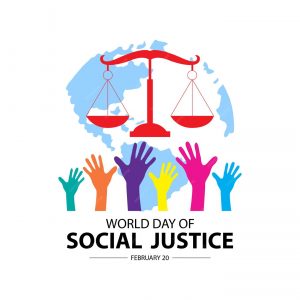
Almost every day I contemplate deleting or deactivating my Facebook account. My dear friend recently pulled the plug on the daily barrage of nonsense, and she’s never been calmer or more present.
“So, don’t look,” she advised, when I lamented my inability to disconnect permanently, but we all know how hard that is. I’m reluctant to miss birthdays and life updates from friends and colleagues who gather on my feed, comprising a network that spans decades. So, each day I procrastinate on detaching from social media, kicking that decision further down the line. And yet, each day a new post irritates me and sets the tone for exasperation and resentment.
My rage and deep anguish since October 7, is no secret. I have written some fiery pieces, which can be found here. I cannot seem to quell my anger surrounding the senseless loss of life, hostages, apathy and growing antisemitism. Seeing supportive Facebook posts from small, targeted pockets provides some modicum of momentary relief, but the general silence is deafening.
Recently, many have taken to social media to engage in a “Not in My Name” style campaign to distance themselves from the Mahmoud Khalil affair, the deportation of the alleged Venezuelan gang members and other asylum seekers with no criminal record. It’s not that my heart goes out to potential criminals, it’s that I live in a democracy, where due process is afforded by law and there are clear procedures for determining a human’s innocence or guilt, and the consequences thereof.
But here’s where it gets fuzzy for me. Where were all the humanitarians when Hamas targeted innocent women, children, babies, men, and elderly people in their homes and at a peace-loving outdoor music fest? Some of the very same people supporting alleged Venezuelan criminals stayed silent when Hamas burned children’s bodies, committed mass rapes, torture and kidnapping. The argument that the sadism, brutality, and calculated hate did not occur in this country and did not affect Americans is absurd and inaccurate. Young American citizens, arguably children, are still in Hamas’s brutal hands, shackled and tortured for 533 days now. So, yes, it does and should concern us.
We are all guilty of attaching ourselves to our cause célèbres, remaining silent when others need us the most, but unless we learn the lessons of history and stand together against all forms of hatred and intolerance, our chances of combating it are low. When we all care about illegal deportations, targeting Jewish students on campuses and uniting against all hate, we have a fair chance at meaningful change.
The issue is that we cannot agree on what constitutes a worthy cause.
Here’s the simple truth: You can either condemn all racism, all injustices and illegal activities, or your run the risk of diluting your own cause. You cannot pick and choose which marginalized groups to support; that picking and choosing inevitably leaves out important voices. When we fail to speak out against all forms of hatred, we fail as a society.
And I am guilty of it.
I am filled with resentment when I see a Facebook post from someone who not only failed to support us after October 7, but is relentlessly posting about Ukraine or deportations (causes that deeply concern me). Our pages are our own platforms, and we (still) have the right to free speech in this country. If you care what others think and how they feel, consider the impact of both your words and silence.
After October 7 I asked a friend why she allowed commenters to hijack her Facebook page with excuses justifying Hamas’s motives in committing some of the greatest atrocities in modern times. She said that she just didn’t know enough about the situation. I explained that Hamas is a terrorist organization, not a social justice cause and that supporting Hamas is not only uneducated, but utterly soulless.
Most importantly, picking and choosing our own causes in a vacuum, creates just that: a useless vacuum of screaming into the ether, instead of a untied and targeted campaign against all human rights violations.
Because we all matter.
Pastor Martin Niemoller was a Nazi sympathizer until he met with Hitler in 1934. He is best remembered for his quote:
First they came for the socialists, and I did not speak out – because I was not a socialist.
Then they came for the trade unionists, and I did not speak out – because I was not a trade unionist.
Then they came for the Jews, and I did not speak out – because I was not a Jew.
Then they came for me – and there was no one left to speak for me.
It remains to be seen whether my Facebook presence lives to see another day, but what is far more concerning, is the lasting damage that excuses and silence has wreaked on my personal relationships.
